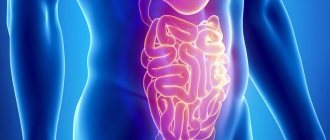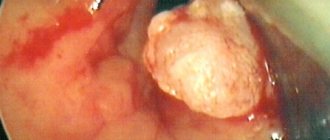A person may experience dizziness after a hard day at work, under stress, or when ill. Long-term regular manifestation of the symptom should alert you. It is especially dangerous if you feel dizzy and nauseous - the causes of such ailment are different, but they definitely need to be found out and treatment started.
Types and types of dizziness
Specialists classify symptoms to facilitate diagnosis and determine treatment.
Dizziness is divided into two types:
- central (manifests itself in pathologies of the brain);
- peripheral (observed when the vestibular apparatus or inner ear is damaged).
The types of symptoms are:
- systemic - manifests itself as a result of disturbances in the functioning of the internal systems of the body (for example, muscular, visual, nervous);
- physiological - manifests itself under stress, overwork, lack of oxygen, glucose.
Patients describe their state of health in different ways - lightheadedness, lightness in the body, the person himself is spinning or all the objects around him are moving. There is often a feeling of fear, increased heart rate, and increasing tinnitus.
Classification of dizziness
Unsystematic dizziness
According to statistics, ¾ of patients who consult a doctor with autonomic disorders complain of dizziness, which has nothing to do with the illusion of rotation of their own body or objects around them. If the described clinic does not correspond to the picture of true dizziness, its cause should be sought not in the vestibular system, but in others, in particular:
- pathologies of the nervous system (dyscirculatory encephalopathy, circulatory failure of the vertebrobasilar zone, polyneuropathy and other diseases);
- disorders of the cardiovascular system (arrhythmias, heart failure);
- disorders of the functioning of the internal secretion organs (diabetes mellitus, thyroid diseases);
- diseases of the visual organs (myopia, presbyopia);
- anemia, etc.
The variety of diseases that are accompanied by severe dizziness and nausea require painstaking differential diagnosis in order to identify the exact cause.
Systemic dizziness
A quarter of patients when visiting a doctor complain of true, or vestibular vertigo. It is often accompanied by other vegetative disorders:
- nausea, vomiting;
- hyperhidrosis (excessive sweating);
- changes in heart rate, fluctuations in blood pressure;
- nystagmus (involuntary rhythmic oscillatory movements of the eyeballs).
The following types of systemic dizziness are distinguished:
- When you feel yourself rotating in the environment – proprioceptive;
- With the illusion of “swinging on the waves”, “falling” down, uneven support - tactile;
- With the apparent rotation of surrounding objects - visual.
Based on the level of damage, central and peripheral vestibular syndromes (CVS and PVS) are distinguished.
CVS is characterized by the following features:
- Occurs due to pathology of vestibular formations in the brain.
- The dizziness is not very strong, but long-lasting (maybe several days).
- During acute processes affecting the vestibular nuclei, a feeling of strong rotation may occur. Residual symptoms of vestibular dysfunction can last for years.
- Hearing impairment occurs rarely and is associated with damage to parts of the midbrain. It causes bilateral hearing loss.
- The nystagmus that occurs during CVS has some differences:
- it can be multiple (i.e., the movement of the eyeballs is carried out in different planes - vertical, diagonal, converging);
- in one eye the nystagmus is brighter than in the other;
- the upper limbs and body deviate towards the nystagmus or remain in place.
PVS is diagnosed based on the following features:
- Its cause is damage to the inner ear, vestibular ganglion and root of the 8th pair of cranial nerves.
- Dizziness is accompanied by vivid sensations of rotation, expressed by autonomic disorders in the form of nausea, vomiting, but continues as long as possible during the day.
- There is no clinic during the inter-relapse period. Residual dysfunction resolves quickly.
- Typically, hearing acuity decreases and noise in the ear is bothersome.
- Nystagmus is characterized by the following differences:
- spontaneous oscillatory movements of the eyeballs are limited to the horizontal plane;
- on the right and left the amplitude and frequency of oscillations are the same;
- the arms and body deviate in the direction opposite to nystagmus.
The next step is to bring all the symptoms together. If they fit within the framework of one pathology, then the disease takes on a certain nosological form. If not, then the diagnosis specifies only the level of damage.
List of causes of illness
Dizziness (vertigo) has various causes. Sometimes they appear in combination. According to medical statistics, more than 100 diseases have this symptom, so you need to pay attention to this manifestation of your body.
Food poisoning
Intoxication of the body due to food poisoning or alcoholic beverages provokes repeated spasms in the intestines and stomach. This causes nausea. Harmful substances penetrate the blood and spread throughout the body. The result is dehydration, which causes vertigo. It will gradually pass as toxic substances are removed.
Infections
Almost all diseases caused by viruses or bacteria are accompanied by dizziness and general weakness. Severe intoxication causes shortness of breath and fever. Infectious damage to the brain, which is provoked by encephalitis, meningitis, is also accompanied by severe vomiting and vertigo.
Brain injury
Brain injury occurs due to excessive physical exertion or negligence.
Vertigo is felt when there is a concussion after a fall or blow. Your head will feel dizzy for the first few hours after the incident. You will begin to feel sick and other symptoms of disorders will appear. Medical assistance and treatment according to a strict regimen are required.
You can get a head injury if there is a pathology of the spine, for example, with osteochondrosis of the cervical segment. Vertigo with this disease will be a constant symptom due to pinched nerve roots in deformed joints. Oxygen and useful substances do not reach the brain, against which negative signs develop.
A severe impact can cause traumatic brain injury. In this case, there will be an acute headache, dizziness, intracranial pressure will rise, and the inflammatory process will begin. After treatment of the injuries, vertigo may remain as a complication.
Diabetes
With diabetes, you often feel dizzy. If the sugar level in the blood suddenly drops, a person’s energy capabilities decrease, and brain cells begin to starve. Weakness, trembling in the hands, and increased sweating gradually develop.
It is necessary to clarify the diagnosis if such a symptom occurs frequently. If hypoglycemia is not confirmed, then there is a risk of developing a pancreatic tumor.
Migraine
With this pathology, blood circulation is disrupted, intolerance to bright light begins, and the vestibular apparatus malfunctions. Typically, a throbbing headache occurs in one temple. Against the background of these migraine symptoms, vertigo develops.
Change in blood pressure
A common cause of the disease is unstable blood pressure.
When indicators are below 100/60, the following occurs:
- vertigo;
- constant chills:
- general weakness;
- feeling of lack of air;
- nausea;
- increased sweating;
- drowsiness.
High blood pressure is characterized by vomiting, cramps, vertigo, and throbbing pain in the temples. In this condition, the functioning of some internal organs is disrupted. If you do not make efforts to stabilize your well-being, various cardiovascular diseases will begin to develop.
Lack of oxygen
Anemia is another cause of dizziness. With a lack of iron in the blood, the level of hemoglobin decreases, as a result, the ability to carry oxygen throughout the body decreases.
Symptoms of hypoxia develop:
- prostration;
- vertigo;
- dyspnea;
- pale skin;
- coldness of the extremities.
Ear diseases
Dizziness occurs when there is a disturbance in the functioning of the organ of hearing.
This is typical for:
- benign tumors of the ears (cholesteatoma);
- inflammation (mastoiditis, otitis);
- overgrowth of bone tissue (otosclerosis);
- diseases of the auditory nerve (neuritis).
Hearing loss may occur.
Meniere's disease
This is a non-inflammatory disease, which is characterized by ringing in the ears, attacks of dizziness and gradual loss of hearing.
When the disease occurs, too much endolymph is produced, which accumulates in the cavities inside the ear. The causes of the pathology are not fully understood. Treatment consists of the correct daily routine and improving the patient’s mental state.
Encephalitis
Inflammatory pathology of the brain is caused by infectious agents or allergens. Dizziness is bound to occur. With encephalitis, intoxication and circulatory impairment occur, resulting in the development of vertigo.
Join:
- weakness;
- headache;
- nausea;
- vomit;
- trembling of limbs.
Lyme disease
This is a serious infectious disease that affects the nervous system, heart, and musculoskeletal system. Transmitted by ticks. Difficult to diagnose and treat, quickly becomes chronic.
Symptoms of intoxication in the first stages of infection will be:
- dizziness;
- prostration;
- aches in joints and muscles.
Complications lead to irreversible changes in the nervous system. It can take several years from a tick bite to the effects appearing. The insidiousness of the disease is that the connection with the cause may be lost, and the treatment will go down the wrong path. Joints often become inflamed and the skin atrophies, which leads to disability and, in severe cases, death.
Vestibular problems
Sudden dizziness occurs in people with a weak vestibular system. With inflammation (neuritis) of the vestibulocochlear nerve, vertigo and attacks of nausea appear. A complication of the pathology will be a decrease in hearing acuity. Sometimes the disease goes away on its own.
Hypersomnia
A neurological disease that causes increased sleepiness. There are special tests to distinguish this pathology from other conditions.
Symptoms:
- prostration;
- apathy;
- loss of appetite;
- lethargy;
- dizziness.
Prolonged stay in this state leads to the loss of professional and everyday skills.
Stress and fatigue
Constant fatigue, overwork, and lack of sleep can cause attacks of sudden dizziness. Symptoms develop due to nervous overstrain and oxygen starvation of cells. Even if a person can endure a few days in emergency mode, he will definitely then feel nauseous and dizzy. The body does not tolerate disruption of order.
Dizziness, weakness and nausea as a symptom of the disease
Nausea and dizziness can be either one-time or periodic; you need to determine the cause of the symptoms in order to understand what to do. If such sensations often bother you, this can be considered a marker of the development of some disease.
The most common causes of vertigo can be the following diseases:
- Whitening the central nervous system (brain tumors, circulatory disorders, physical injuries, migraines, stroke) and the peripheral nervous system (neuralgia and neuritis).
- Diseases of the inner ear: poor circulation, salt deposits, high fluid pressure, infectious lesions.
- Eye diseases.
- Poisoning. When intoxicated, many toxins enter the circulatory system, which travel to the brain and cause a feeling of vertigo.
Causes of dizziness and nausea
The addition of nausea to dizziness is a serious signal. This may indicate the development of diseases of internal organs and system malfunctions. The causes may be hormonal changes, poisoning, pathologies. If such symptoms recur, you should definitely consult a doctor.
With sudden movements
In some cases, dizziness occurs only with sudden movements, for example, when turning, bending, lifting, or changing position. At the same time, one feels weakness in the body, sometimes trembling in the limbs.
The reasons for such manifestations are:
- cervical osteochondrosis;
- migraine;
- Meniere's pathology;
- neuritis;
- neoplasms.
Lack of oxygen flow to the brain when changing posture leads to dizziness.
With darkening in the eyes
With dizziness, sometimes there is a darkening in the eyes, which greatly frightens the person. At the same time, breathing may be held and a sudden onset of powerlessness may occur.
The main reasons for this condition:
- climbing to great heights;
- high level of adrenaline, which increases under stress and heavy exertion;
- performing physical exercises to the maximum limit;
- cervical osteochondrosis;
- a strict diet that sharply reduced the supply of glucose, a brain nutrient;
- head injuries;
- prolonged focusing of the gaze on one object, which leads to overwork of the eye muscles;
- oncological diseases.
If there is darkening in the eyes, you should definitely consult a doctor and look for the reasons for this manifestation.
During pregnancy
Nausea, vomiting, dizziness, weakness in women at the beginning of pregnancy are not recognized as abnormalities. The body is preparing for a new role. All systems can fail. Hormonal imbalance begins, a large influx of blood and nutrients, and oxygen flows to the growing embryo.
The restructuring of functions negatively affects a woman’s well-being. This usually occurs in the morning and can last all day. You need to rest as much as possible and breathe fresh air. By the end of the first trimester, the condition returns to normal.
During menopause
Dizziness during menopause is common. The vascular system undergoes changes, the functioning of which is disrupted by frequent hot flashes. The feeling of heat from them activates the sweat glands, which provokes vertigo.
During menopause, estrogen synthesis decreases, causing blood vessels to lose their firmness and elasticity. The amount of cholesterol increases, which is rapidly deposited in the form of plaques. The blood becomes viscous and its progress is impaired. Poor circulation leads to oxygen starvation, lack of nutrients, and therefore dizziness.
In women during menopause, their mood deteriorates, increased nervousness, anxiety, irritability appear, and sleep deteriorates, which can also cause the development of vertigo.
In teenagers
After the age of 14, the endocrine system begins to actively work. The secretory organs of the gonads synthesize female and male hormones. The thyroid gland begins to intensively produce growth hormone. Active substances force the body to work harder.
This can lead to violations in the form of:
- dizziness;
- nausea;
- rapid heartbeat;
- mood swings;
- malfunction of the digestive system.
If you have chronic pathologies, there is a risk of their exacerbation. By the age of 18, adolescents’ well-being stabilizes.
For smokers
If smokers feel dizzy and feel weak due to nausea, the reasons may be related to the development of new pathologies or chronic diseases. But the factor that provokes this condition will be nicotine - it negatively affects blood vessels and the brain.
Tobacco smoke even causes oxygen starvation in so-called passive smokers. Due to the narrowing of blood vessels, blood pressure begins to rise. The heart cannot withstand constant stress, and irregular rhythms begin.
At the beginning of smoking, a person feels some relief as the blood vessels dilate, but this is a temporary feeling. Then a spasm begins, followed by a headache due to lack of oxygen.
What are dizziness and nausea?
In most cases, nausea is a sign of infection.
Dizziness is a sensation in which a person feels that he or objects are moving or spinning around him. This is one of the most common complaints from patients of doctors of various specializations, and it requires clarification of the cause. In some cases, dizziness is caused by a combination of several causes.
Nausea is the feeling of a reflexive urge to evacuate the contents of the stomach, i.e., to vomit. This symptom can be provoked by various local (for example, in case of poisoning) or cerebral (for example, in case of low blood pressure) reasons. Local causes of nausea are caused by poisoning, intoxication and intestinal infections. In this case, the mucous membrane of the stomach or intestines is irritated by toxins or toxic substances - in response to such an effect, the stomach tries to get rid of them. With cerebral causes, nausea occurs due to insufficient supply of oxygen and nutrients to the brain. This provokes the appearance of a nerve impulse, which gives a signal to empty the stomach. This protective reaction of the body is caused by the fact that the brain tries to save its energy costs for its own survival, since digesting food requires a significant amount of energy.
Reasons for frequent symptoms
Regular occurrence of vertigo is associated with the following reasons:
- side effects from taking certain medications;
- chronic diseases;
- bad habits;
- age-related changes;
- increased weather sensitivity.
The appearance of dizziness usually does not occur in isolation; it is accompanied by additional symptoms. Using them, the specialist determines the disease, which is then clarified using diagnostic methods.
The appearance of the condition in children
Dizziness in childhood can occur for various reasons.
The most common are:
- emotional shock;
- experience;
- overexcitement.
The child’s nervous system is still weak, his psyche is unstable, so even positive events can be reflected in negative symptoms. The joyful anticipation of a fun holiday can be spoiled by nausea and dizziness, because the baby is unable to cope with his worries.
Psychological stress at school and quarrels in the family intensify painful manifestations. A migraine may develop, which is accompanied by dizziness, fatigue, and weakness. It can last a whole day or several days.
Many infections (flu, ARVI), sinusitis, sinusitis are also characterized by dizziness. When nasal congestion occurs, normal breathing is limited, which leads to a lack of oxygen in the blood. A prolonged runny nose provokes lethargy, headaches, and vertigo.
Drug intoxication and food poisoning
The symptoms of drug intoxication or food poisoning are significantly different, so it is much easier to recognize them. In case of poisoning, a feeling of nausea is observed until the body completely gets rid of toxic substances. Dizziness is characterized by a sharp increase in intensity at the first stage of poisoning, with a gradual decrease as recovery progresses.
The cause of dizziness is a protective reaction of the body, which tries to get rid of harmful substances as quickly as possible through vomiting, nausea, excessive sweating and diarrhea.
Due to the effects of toxins on the brain, there is:
- noise in ears;
- darkening of the eyes;
- lack of coordination;
- apathy.
With drug intoxication, blood stagnation occurs in the liver, which leads to loss of balance and coordination. It is necessary for the doctor to either replace the drug with an analogue, or stop the course of treatment, or prescribe protector drugs that protect the body and neutralize the negative consequences.
In case of food poisoning, it is worth cleansing the body by inducing vomiting, using an enema in the later stages, and also using absorbents. In case of serious poisoning, an antidote can be taken as prescribed by a doctor.
Diagnostic rules
To prescribe effective treatment, it is necessary to understand the reasons for the appearance of such a symptom. Diagnostics helps with this. First, the doctor interviews the patient, finds out the time of onset of negative symptoms, the presence of injuries, and manifestations of consequences in the form of decreased vision or hearing. Be sure to ask the patient about taking alcoholic beverages and drugs, which also cause dizziness and nausea.
A comprehensive examination includes the following procedures:
| Name | Purpose of the survey |
| Laboratory tests of urine and blood | Determine the presence of an inflammatory process in the body |
| Radiography | The condition of the spine, in particular the cervical spine, is assessed |
| Tomography (MRI or CT) | Provides complete information about the activity of organs and systems, allows you to clarify the cause of the pathology |
| Vestibulometry | Detects pathologies of the ENT organs, spine, vestibular apparatus, and neurological changes. |
| Audiometry | Hearing acuity is measured, sensitivity to waves of different frequencies is revealed |
| EEG | Provides information about pathological brain disorders |
Additionally, women of reproductive age are scheduled to be examined by a gynecologist to detect pregnancy. The doctor also measures blood pressure, pulse, and performs balance and balance tests.
What physiological conditions cause nausea and dizziness?
Physiological causes of dizziness and nausea include hormonal changes that occur in women during pregnancy and menopause. In girls, signs appear with heavy menstruation. The body's sensitivity to moderate blood loss and lack of nutrition play a role.
Women complain of dizziness, weakness, and staggering when walking. If pain appears in the lower abdomen, you should urgently contact a antenatal clinic and find out the cause.
Vegetative-vascular dystonia is considered by some to be a physiological process, while others consider it to be a pathology. There is no doubt that all symptoms appear in adolescents and children. They are associated with hormonal fluctuations during periods of active growth. Schoolchildren often experience dizziness and fatigue. This also applies to young, impressionable women. No organ disorders were detected.
Dizziness and vomiting are a common reaction of the human nervous system to vibration and body vibrations in transport, in flight, at sea. People call it "motion sickness" or "sea sickness." Signs are accompanied by excessive salivation, headache in the temples, and sweating. Associated with low adaptive function of the autonomic nervous system.
Stressful situations - a normal reaction includes the release of catecholamines, which temporarily spasm the blood vessels of the brain. The condition returns to normal after rest and calming procedures. Hypoxia does not reach threshold values and does not cause circulatory disorders in neurons. With frequent repetition, the nature of the changes is disrupted. Vasospasm causes pathology.
Treatment
Therapy is based on the causes of dizziness. There is no need to eliminate the symptoms; they will return if left untreated.
| Diseases | Treatment methods |
| Hypertension | Drug therapy. Effective drugs: Clonidine, Captopril. |
| Meniere's pathology | Diuretics, antihistamines, and sedatives are prescribed. |
| Otitis | Antibacterial agents, antipyretics, anti-inflammatory drugs. If the condition does not improve and suppuration begins, then surgery is performed. |
| Tick-borne encephalitis | Antiviral, immunomodulatory agents. In severe cases, hormonal drugs to eliminate inflammation. |
| Cerebrovascular disorders | Vascular drugs, for example Trental. |
| Cervical osteochondrosis | Drug treatment in combination with special gymnastics, therapeutic massage, and physiotherapy. |
| Poisoning | Antispasmodics, electrolytes. Effective drugs: Atoxil, Polysorb, No-Shpa, Activated carbon, Enterosgel. |
Treatment continues for a long time. People with vertigo need to stop smoking, drinking alcohol and adopt a healthy lifestyle.
First aid
If a person develops negative symptoms: dizziness, nausea, general weakness, darkening of the eyes, emergency assistance must be provided immediately.
Action plan:
- Lay the person horizontally. The head and shoulders should be slightly elevated and tilted to the side in case of sudden onset of vomiting. This will help prevent liquid from getting inside.
- Provide fresh air by opening a window or simply fanning it with improvised means. Unbutton all the buttons on your neck, untie your tie and scarf, and loosen your belt.
- A cold compress should be applied to the forehead and temples - a cloth soaked in water, pieces of ice or frozen food. As a last resort, soak a napkin in vinegar.
- Give the victim a sniff of ammonia.
If you notice that a person is dizzy, you need to offer help. This will help him avoid injury.
When do you need a doctor?
Some symptoms require immediate medical attention. Symptoms may indicate serious problems in the body.
Symptoms of severe disorders:
- prolonged vertigo (more than 7 days);
- mood changes for no apparent reason;
- simultaneous manifestation of dizziness, nausea, temperature more than 38 ° C;
- when changing body position, weakness is felt;
- excessively low or high blood pressure;
- hand tremors;
- consciousness is clouded, speech is confused.
It is imperative to call a doctor if symptoms appear in children under 3 years of age and adults over 60 years of age. You cannot self-medicate. While the ambulance is traveling, the dispatcher will tell you what to do to alleviate the person’s well-being.
Which specialist should I contact?
The initial examination is carried out by a therapist.
Based on the nature of additional symptoms, he determines which doctor should be contacted next:
- infectious disease specialist - if there is a possibility of infectious diseases, such as meningitis, tick-borne encephalitis;
- to a neurologist - in case of damage to the nervous system;
- to a vertebrologist - if there are additional signs of changes in the spine;
- otolaryngologist - if there is a suspicion of pathology of the ENT organs or vestibular apparatus;
- to an oncologist - if the formation of intracranial neoplasms is suspected.
Treatment of dizziness and nausea
Each of us should be able to provide first aid for attacks of dizziness and nausea. It includes the following activities:
- lay the patient on a horizontal surface and provide an influx of fresh air;
- ensure normal temperature conditions;
- give 7–10 drops of atropine sulfate to drink;
- if you lose consciousness, suggest placing a cotton wool soaked in ammonia under the nostrils;
- for nervous tension, offer sedatives or tranquilizers (tincture of motherwort, valerian, Novo-passit, Seduxen, Andaksin, etc.);
- with low blood pressure, give a cup of sweet hot tea;
- call a doctor or ambulance.
Treatment for dizziness and nausea can only be prescribed by a doctor. It is aimed at eliminating the cause (or causes) of its occurrence and treating the underlying disease. Isolated treatment of these symptoms does not make any sense, because they will appear again.
To alleviate the patient's condition during attacks of nausea and dizziness, the following can be used:
- Diazepam, Meclozine, Promethazine, Scopolamine, Lorazepam and other vestibulolytic agents;
- dehydration therapy with intravenous administration of Euphyllin and Mannitol;
- Betahistine hydrochloride;
- Cerucal or Metoclopramide (to eliminate painful nausea or vomiting);
- Cinnarizine;
- Vasano, Aeron, Cyclizine, Promethazine, scopolamine patches, Bonina, Dramamine (for seasickness).
Good results are obtained from sessions of manual therapy, therapeutic massage, acupuncture and physical therapy.
Folk remedies
Folk recipes contain tips on how to get rid of dizziness:
- A drink made from pomegranate juice (2 parts), carrots (1 part), red beets (2 parts). Drink 100 ml before meals three times a day.
- Drink 100 ml of freshly prepared carrot juice before meals three times a day.
- Pour parsley seeds (1 large spoon) into a glass of chilled boiled water, stir, and cover with a lid. Leave for 8 hours, filter. Take 50 ml before each meal.
- Grind lemon balm leaves (1 large spoon), pour boiling water (200 ml). Leave for 7 minutes, filter, take for dizziness, and always in the evening before going to bed. You can add sugar, honey or jam.
- Sage inflorescences (4 large spoons) are brewed with boiling water (250 ml). Leave for 30 minutes, filter. If desired, add honey and drink before meals.
- Pour boiling water (500 ml) over clover flowers (1 small spoon), leave for 20 minutes. Filter, take in the morning for one month.
- Mix lemon balm mint leaves and linden blossom in equal proportions. Take 1 large spoon of the mixture and pour boiling water (350 ml). Leave to cool. Filter, apply warmed every 3 hours.
- Grind the ginger root into powder. Take a quarter of a tablespoon three times a day, mixed with water.
Before using traditional recipes, you need to make sure that you are not allergic to the components.
Prevention
To prevent dizziness, you should keep your blood pressure, cholesterol and sugar levels under control. This is especially true for people over 40 years of age and those prone to vertigo. For viral infectious diseases, it is necessary to maintain bed rest, not to tolerate pathologies on the legs, to complete the course of treatment, and not to stop using medications at the first time you feel better.
You should increase your resistance to stress and strengthen your nervous system. This is facilitated by sports, yoga, creativity, reading books, and collecting. Following a daily routine helps restore the functioning of internal organs.
All the rules are simple and easy. Usually they are violated first, then complications arise in the form of dizziness, decreased performance, constant drowsiness and nausea.
Doctors' advice
Dizziness is a nonspecific symptom that can indicate many diseases.
Experts advise:
- if dizziness begins, there is no need to close your eyes, it is better to hold your gaze on one object;
- if you feel like you will lose consciousness, it is better to sit down;
- people prone to vertigo should not stick to diets and limit themselves to salt;
- you need to walk in the fresh air every day, include foods with iodine and iron in your menu;
- drink enough water to avoid dehydration;
- It is advisable to master relaxation techniques to relieve anxiety.
Isolated dizziness is not dangerous, but repeated attacks with added nausea need to be examined. This approach to your health will allow you to identify the development of pathologies in the early stages and cure them faster. Video You can learn more about the possible causes of dizziness from the video.
Features of first aid
What to do if a person has an attack of dizziness with nausea depends on the complexity of the situation. Basically, the use of home methods before visiting a doctor is limited to creating comfortable conditions that provide an influx of fresh air, plenty of fluids and a minimum of head movements. In situations where the deterioration in well-being is not caused by a serious illness, you can use one of the tips presented.
- If the head is dizzy as a result of a sudden attack of lightheadedness caused by nervous overstrain, then as first aid the patient should be seated, preferably near an open window, and given ammonia to sniff. After a few minutes, the person will feel better, and the unpleasant symptoms will disappear.
- If you usually feel dizzy and nauseous when traveling for many hours by bus or car, sucking on mint candies or taking special anti-motion sickness pills will help prevent a pathological attack.
- If women feel dizzy due to long-term adherence to a strict diet, then the unpleasant symptoms will quickly go away if they drink warm, sweetened tea or eat a piece of chocolate or candy.
- If you feel sick due to food poisoning, then taking sorbents and performing a bowel cleansing procedure with an enema, as well as trying to cleanse the stomach by causing a gag reflex, will help remove the symptoms of intoxication.
- If your head hurts due to a migraine attack, then a light manual massage using aromatic oils or a gradual intake of first vasodilators, and after a while - vasoconstrictors, will help to cope with it. If you have a migraine, it will also be useful to lie down for a while in a shaded room. In addition, if you have a headache and pressure in your temples, taking herbal remedies will help relieve the symptoms.
If the feeling of dizziness and nausea appears after injury to the spine or head, only qualified medical care can alleviate the symptoms. Self-medication in this situation is ineffective and can even cause harm.











